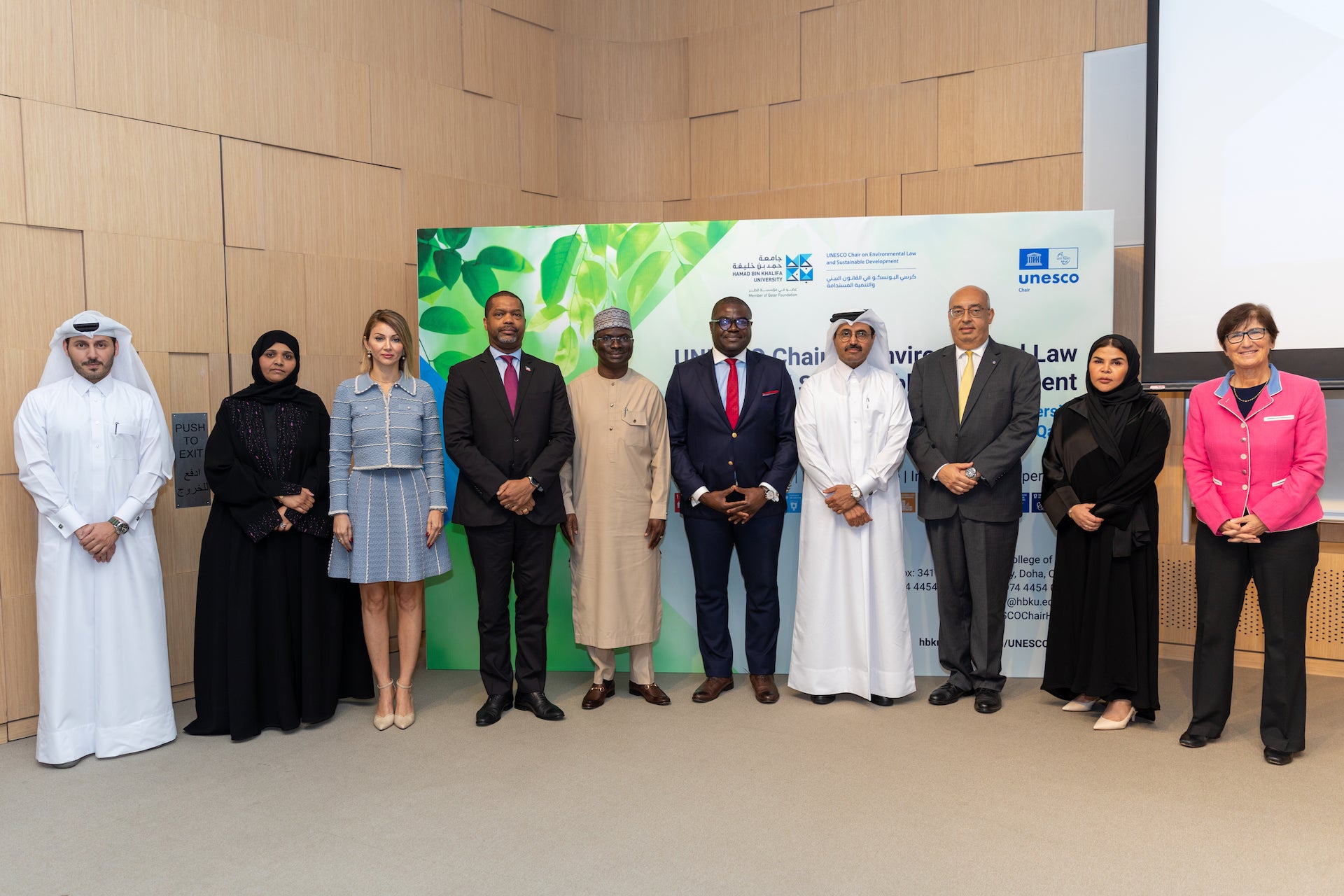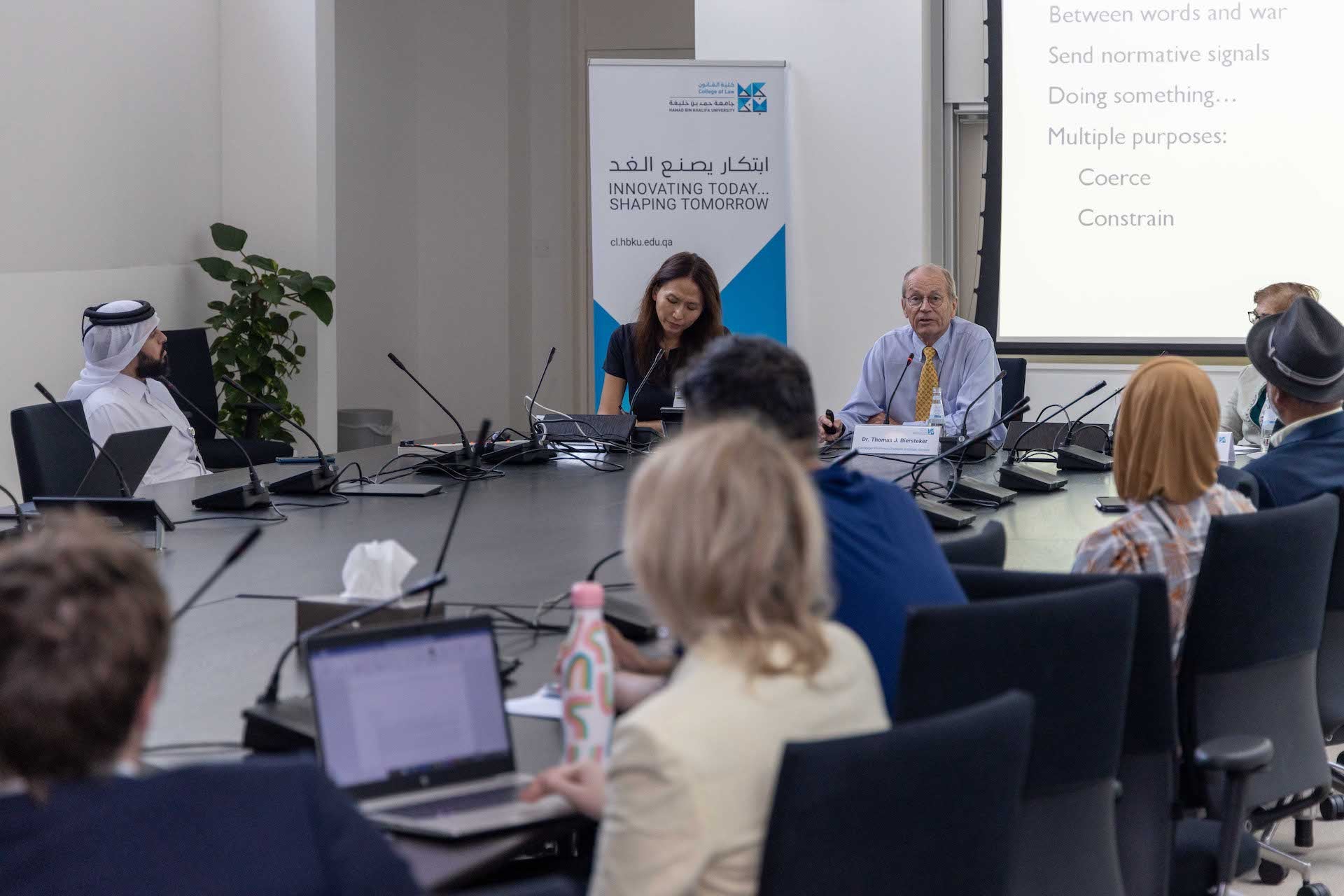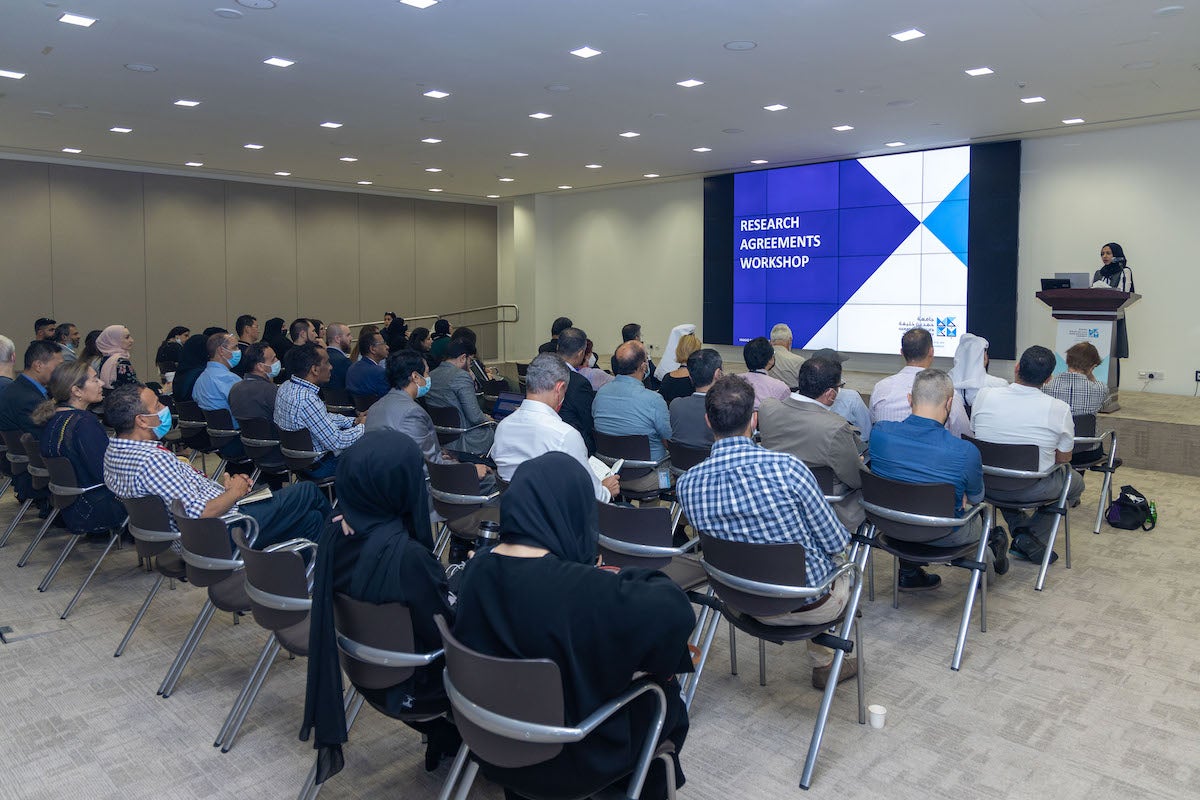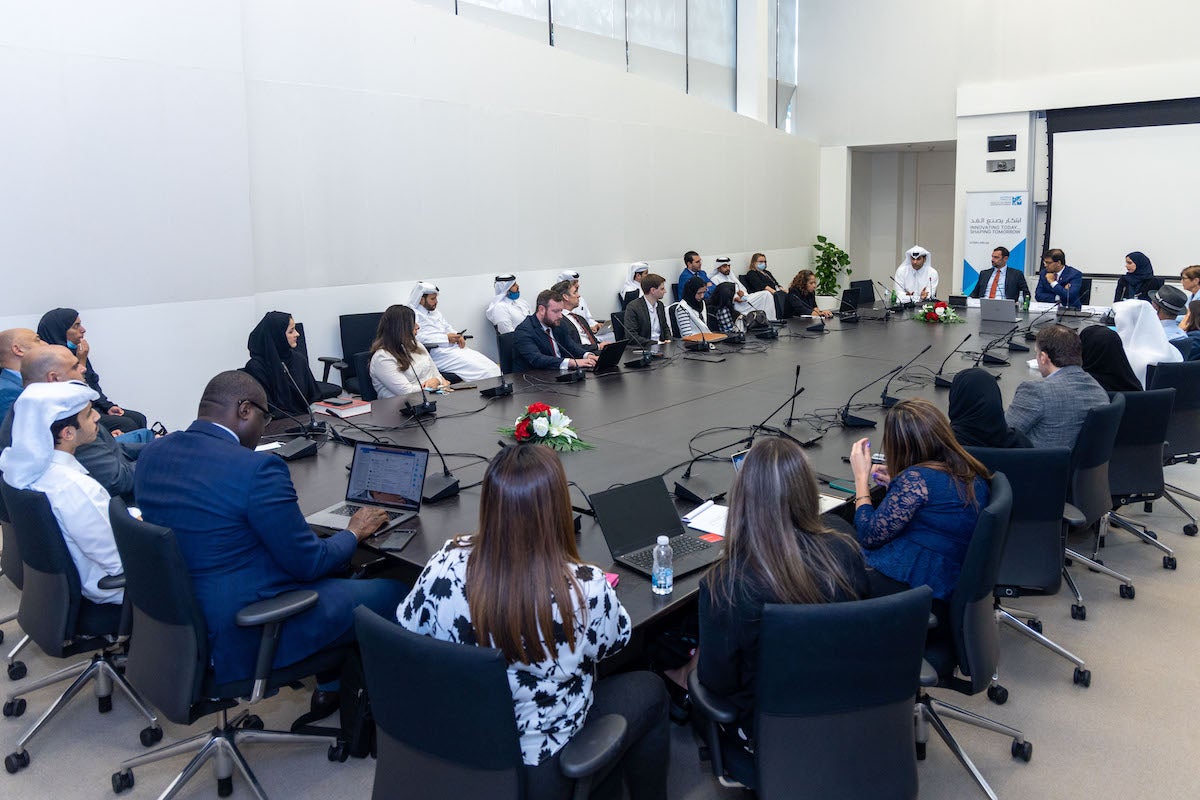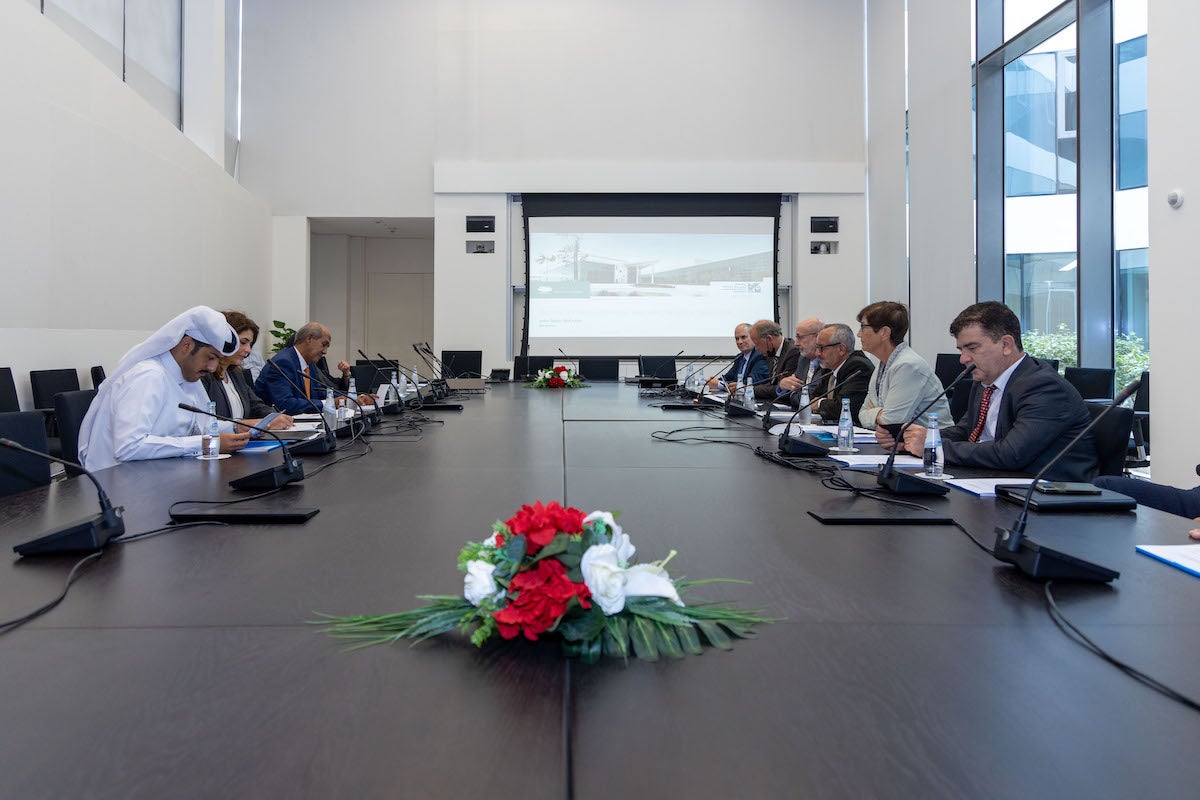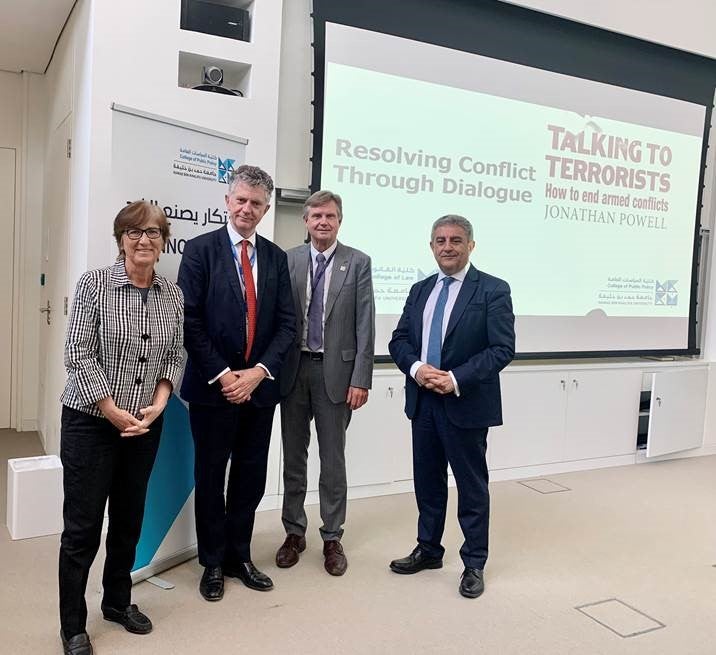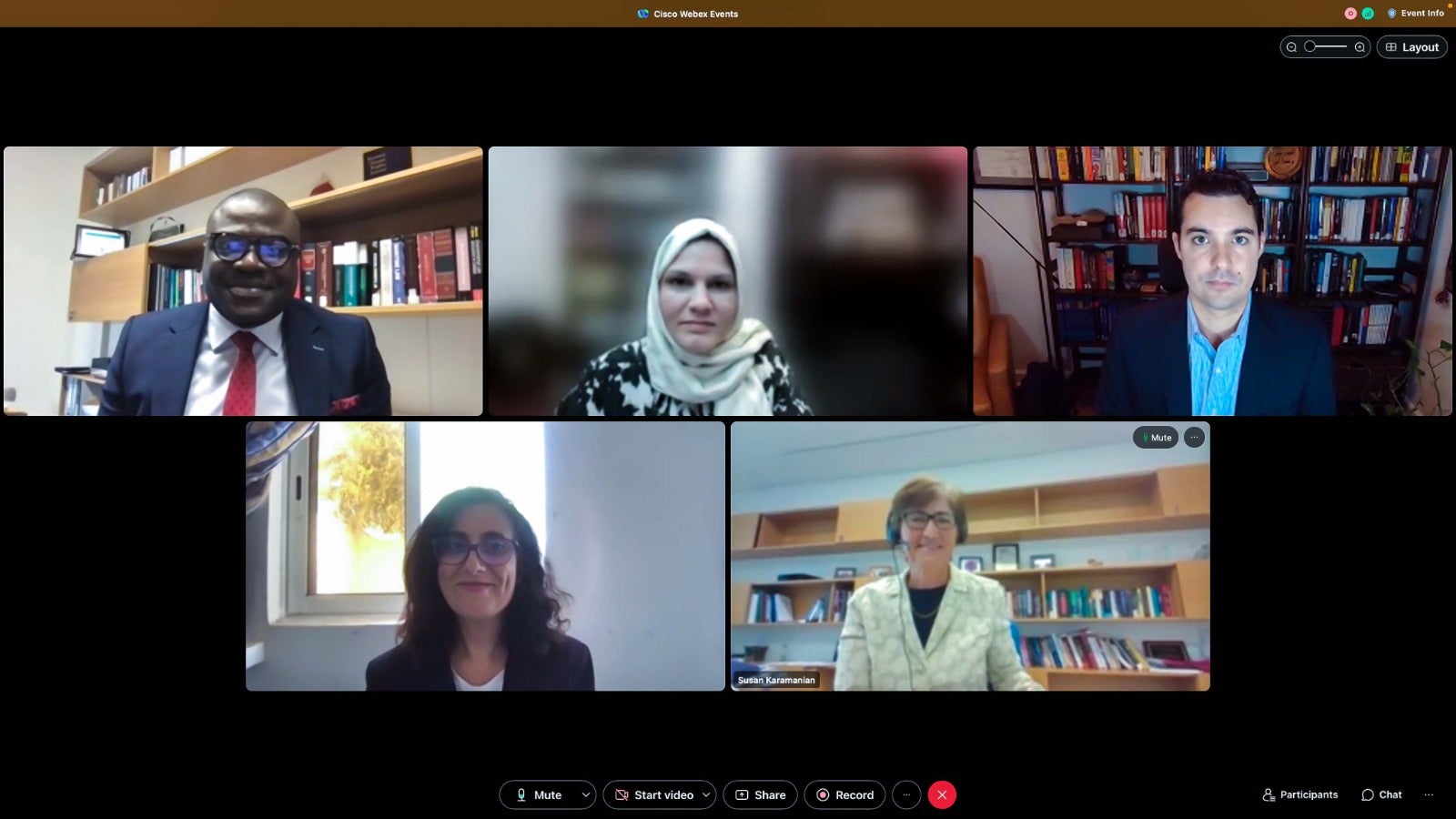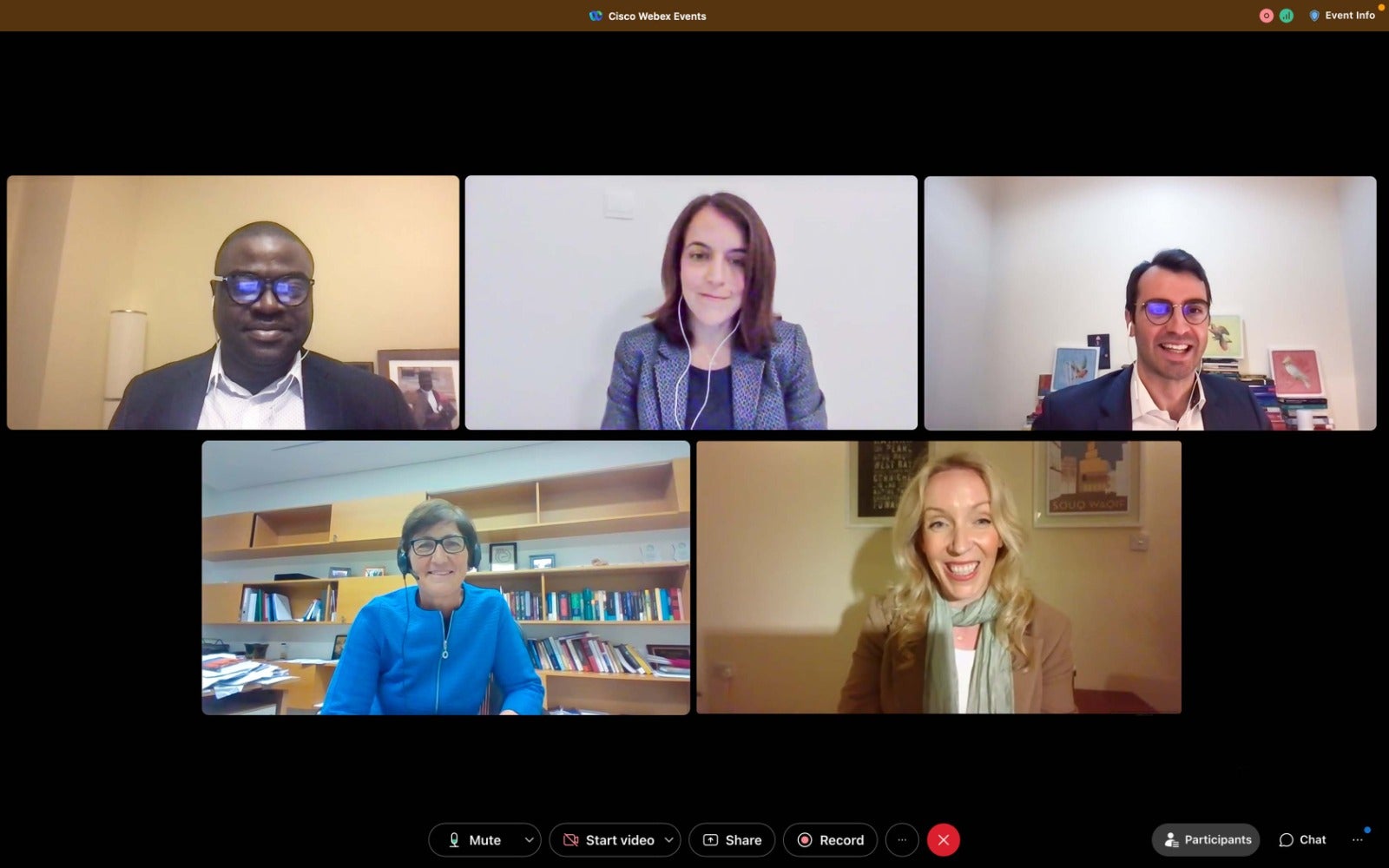
College of Law Hosts Third Scientific Conference of Middle East Environmental Law Scholars
Conference features high-level workshop with UN Environment Programme
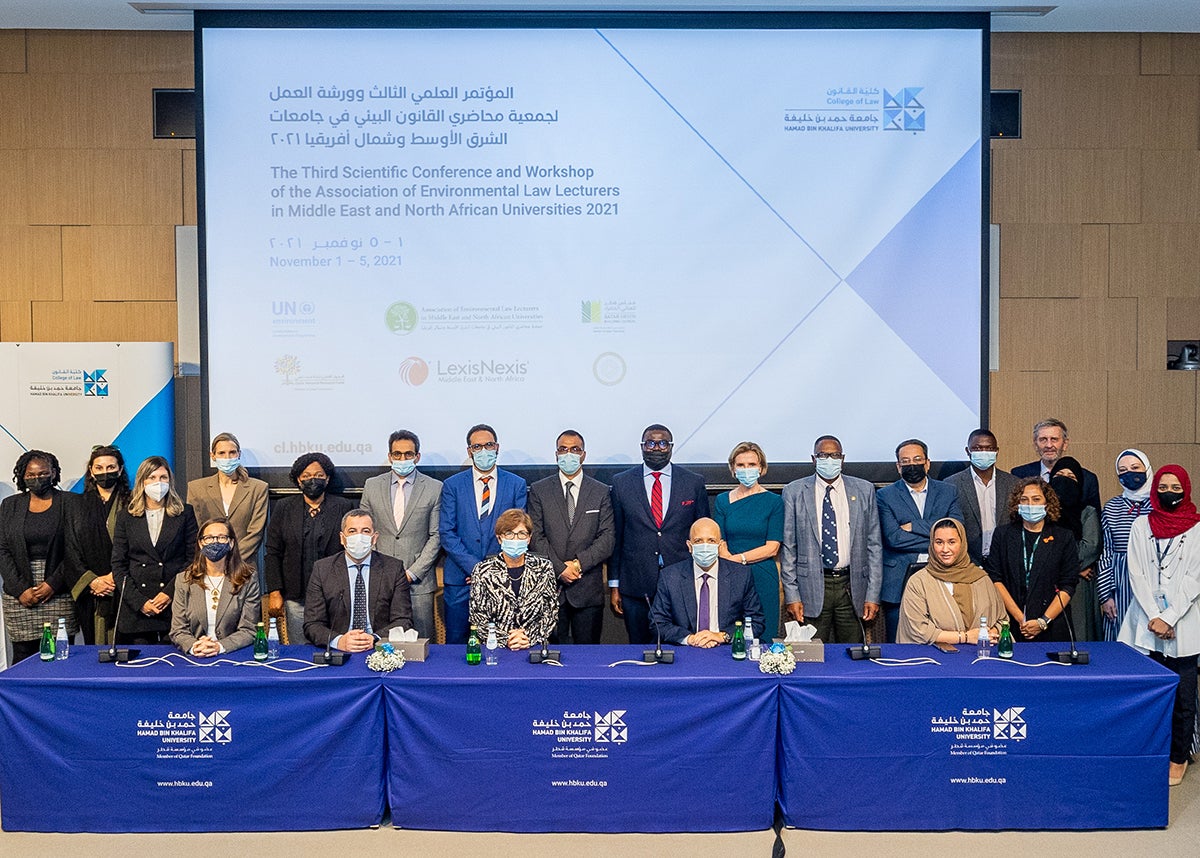
Focusing on the role of environmental law education in advancing sustainable development, the College of Law at Hamad Bin Khalifa University (HBKU) is convening the region’s leading environmental law scholars for an intensive five-day conference and workshop.
The Third Scientific Conference and Workshop of the Association of Environmental Law Lecturers in Middle East and North Africa Universities (ASSELLMU) is being held at HBKU in Education City from November 1-5. The event is supported by the United Nations Environment Programme (UNEP) and the Qatar National Research Fund (QNRF).
On the opening day, participants were welcomed by ASSELLMU Chair Dr. Damilola S. Olawuyi, SAN, Associate Professor and Associate Dean of Research at HBKU’s College of Law. Dr. Michael Benedik, HBKU Provost, gave opening remarks jointly with UNEP’s Professor Patricia Mbote, Director of the Law Division; Dr. Hatem M’Henni, Senior Program Manager, QNRF; and Ms. Caroline Presber of LexisNexis Middle East and North Africa. Mr. Ahmad Musa Al-Namla, Chief Executive Officer, Qatar Museums, delivered a keynote address that explored the role of education and public awareness in promoting sustainable development.
This year’s event features a five-day intensive and high-profile Train the Trainers (TTT) workshop, which was organized with UNEP. Both the plenary and TTT program provide opportunities for sharing information on how to enhance capacity for environmental law development and implementation in the region. The program covers national, regional, and international law aspects over five substantive topics. These include the role of environmental law education in advancing sustainable development goals (SDGs); innovative approaches to teaching, research and litigating environmental law; and meeting the capacity needs of environmental law agencies and ministries.
Professor Mbote said: “Designing effective and innovative environmental law education programs will not only promote a methodical and coherent development of this body of law, but will also stimulate curiosity among young minds. Importantly, such programs will contribute to the achievement of environmental education targets under Goal 4 and Goal 13 of the 2030 Sustainable Development Agenda. I look forward to continued collaboration with higher education institutions in the MENA region and working toward the entrenchment of environmental law courses in all legal education programs.”
HBKU is represented in the event by the College of Law’s Susan L. Karamanian, Dean; Hilary Bell, Assistant Professor of Law; and Dr. Dalal Aassouli, Assistant Professor of Islamic Finance at HBKU’s College of Islamic Studies. Several prominent Qatari entities are also taking part, including the Ministry of Environment and Climate Change, Qatar Airways, Qatar Museums, Qatar Green Building Council, LexisNexis Middle East and North Africa, and The Abdullah Bin Hamad Al Attiyah International Foundation for Energy and Sustainable Development.
Since its inception in 2018, ASSELLMU has been at the forefront of promoting education in environmental law in the MENA region.
Dean Karamanian said: “The conference and workshop are opportunities for interaction and collective engagement with ASSELLMU members and participants to consolidate the achievements of our first two conferences. In the third edition, we are empowering regional environmental law champions with the advanced teaching skills and tools to drive the implementation of the UN Sustainable Development Goals. These are the pillars of ASSELLMU’s work. We are indebted to UNEP and QNRF for their continuous support and participation in our efforts. We are also grateful to Dr. Damilola and the ASSELLMU governing body for their leadership.”
Dr. Olawuyi added: “ASSELLMU has grown as the foremost platform to exchange new ideas and develop innovative approaches to the teaching of environmental law in our institutions. The support of our members has been critical, and we encourage their continuous outreach to other environmental law scholars in the MENA region to keep promoting our forward-thinking agenda even beyond the conference.”
Related News
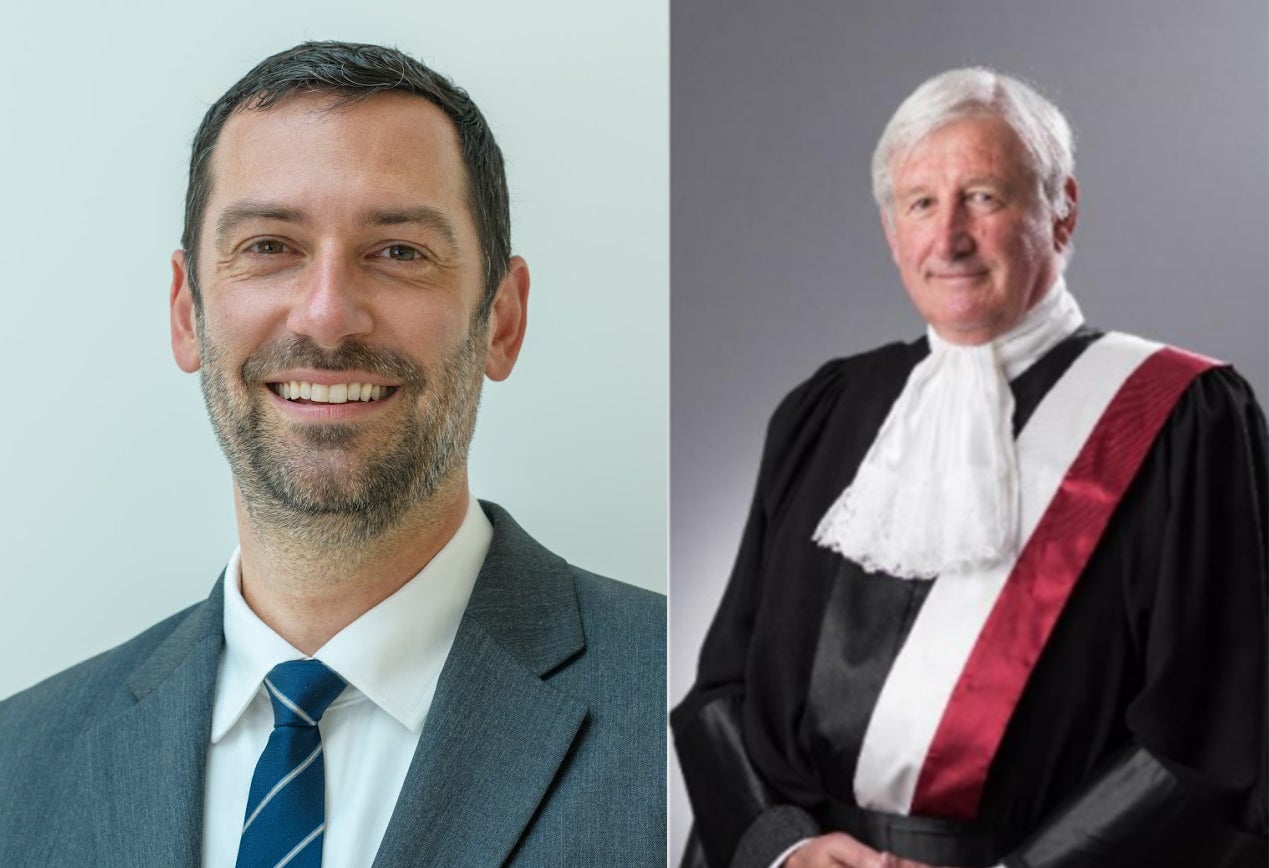
College of Law and the Qatar International Court and Dispute Resolution Centre Examine Mediation in Qatar
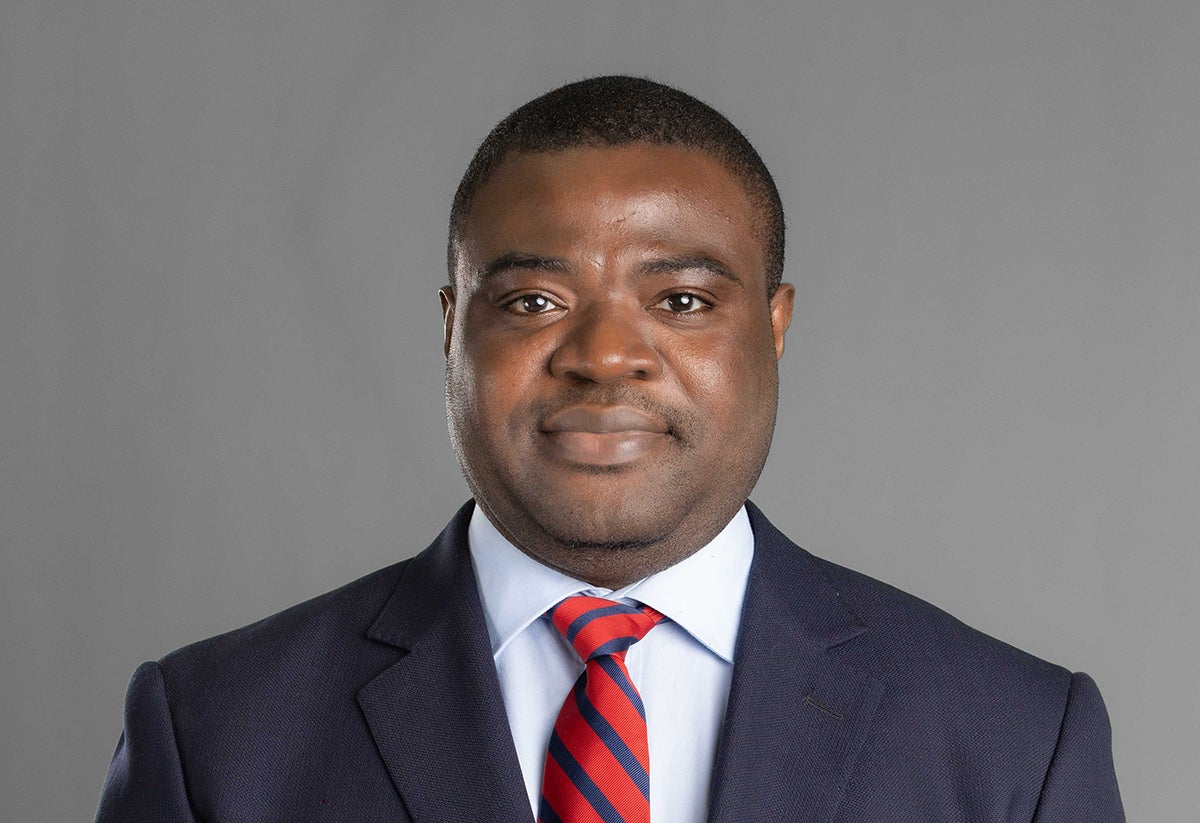
College of Law Roundtable for MENA Scholars Discusses Strengthening Environmental Legal Education and Practice
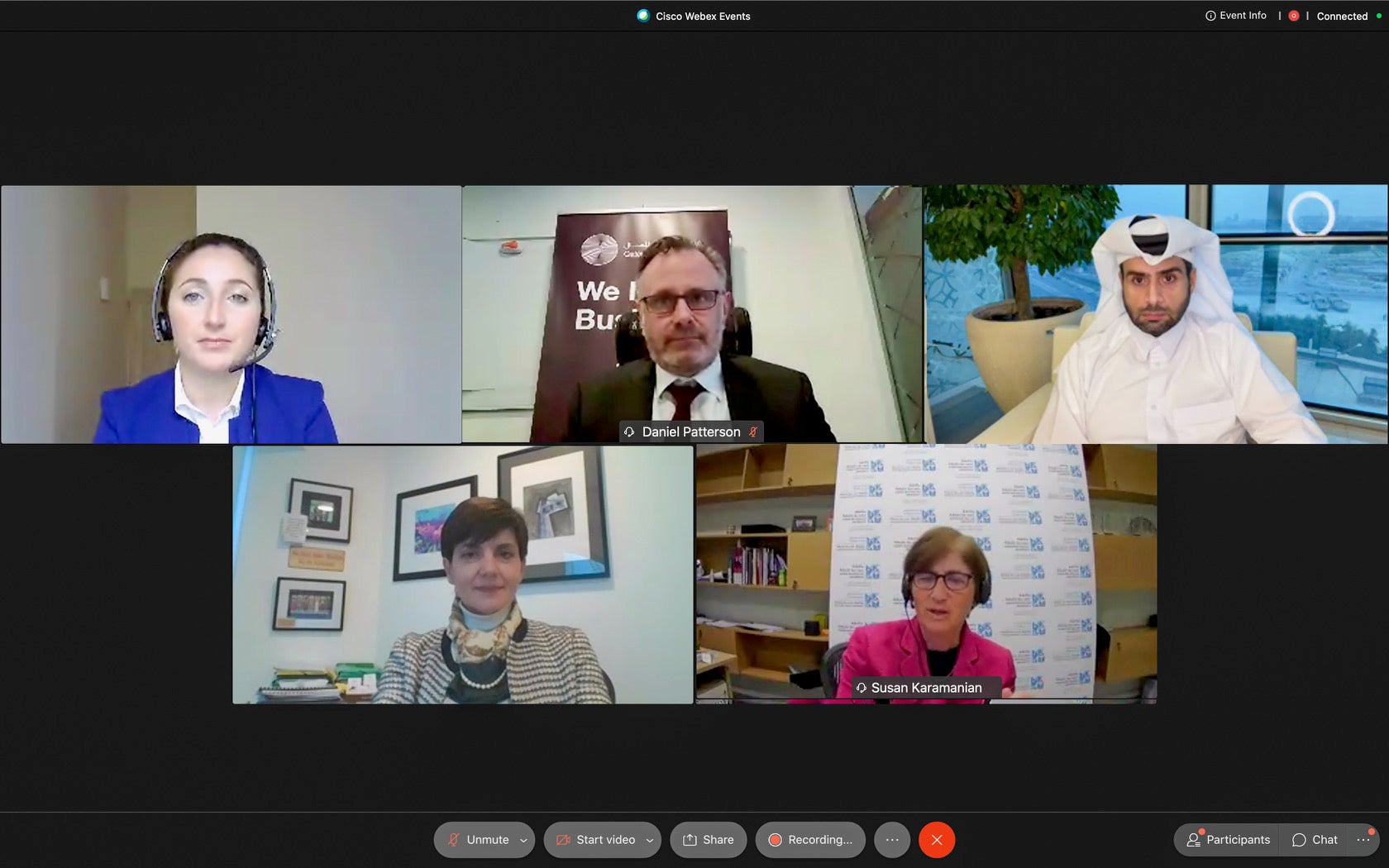
College of Law at HBKU Partners with Qatar Financial Centre to Explore COVID-19’s Impact on Employment Laws
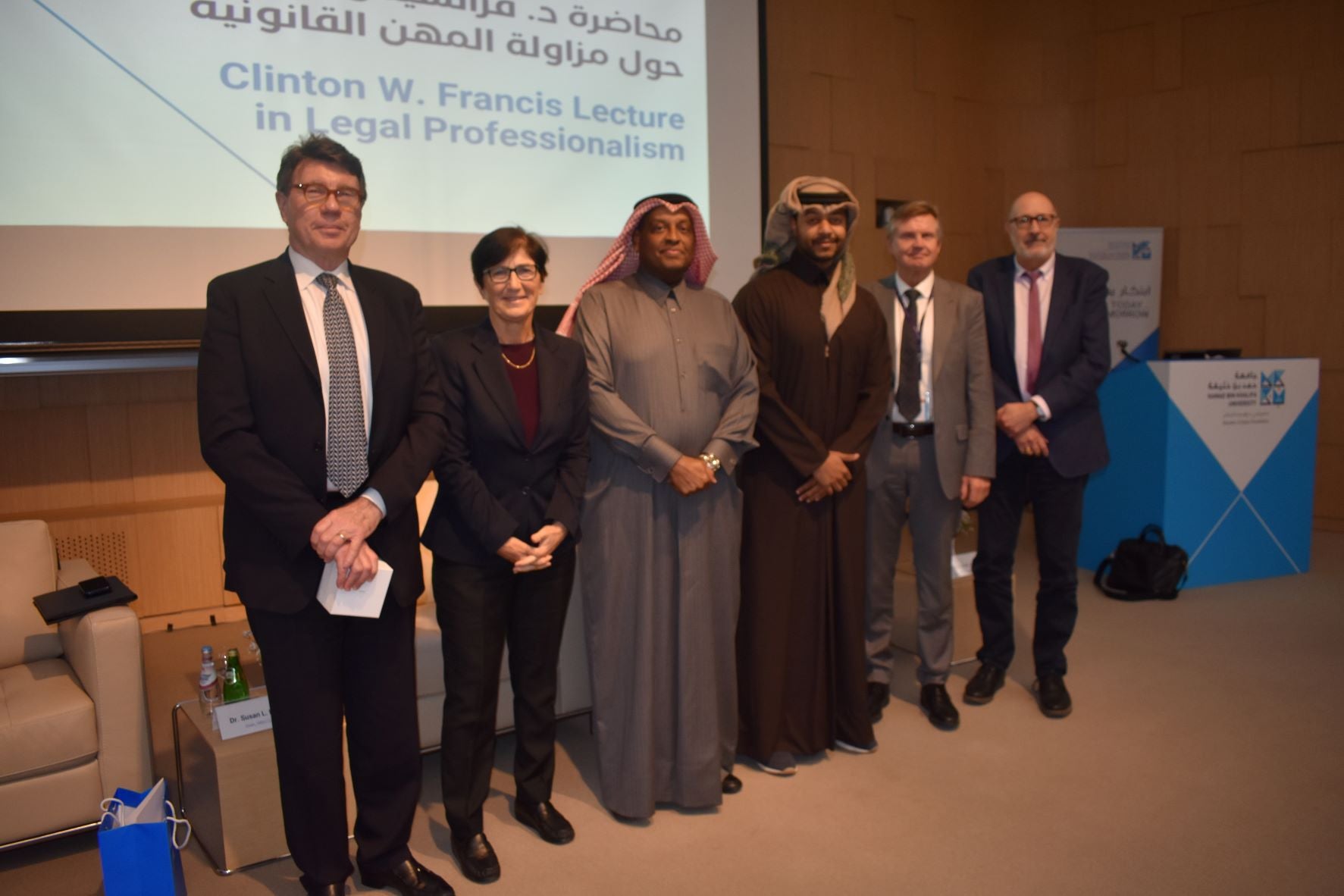
College of Law Hosts Second Clinton W. Francis Lecture in Legal Professionalism
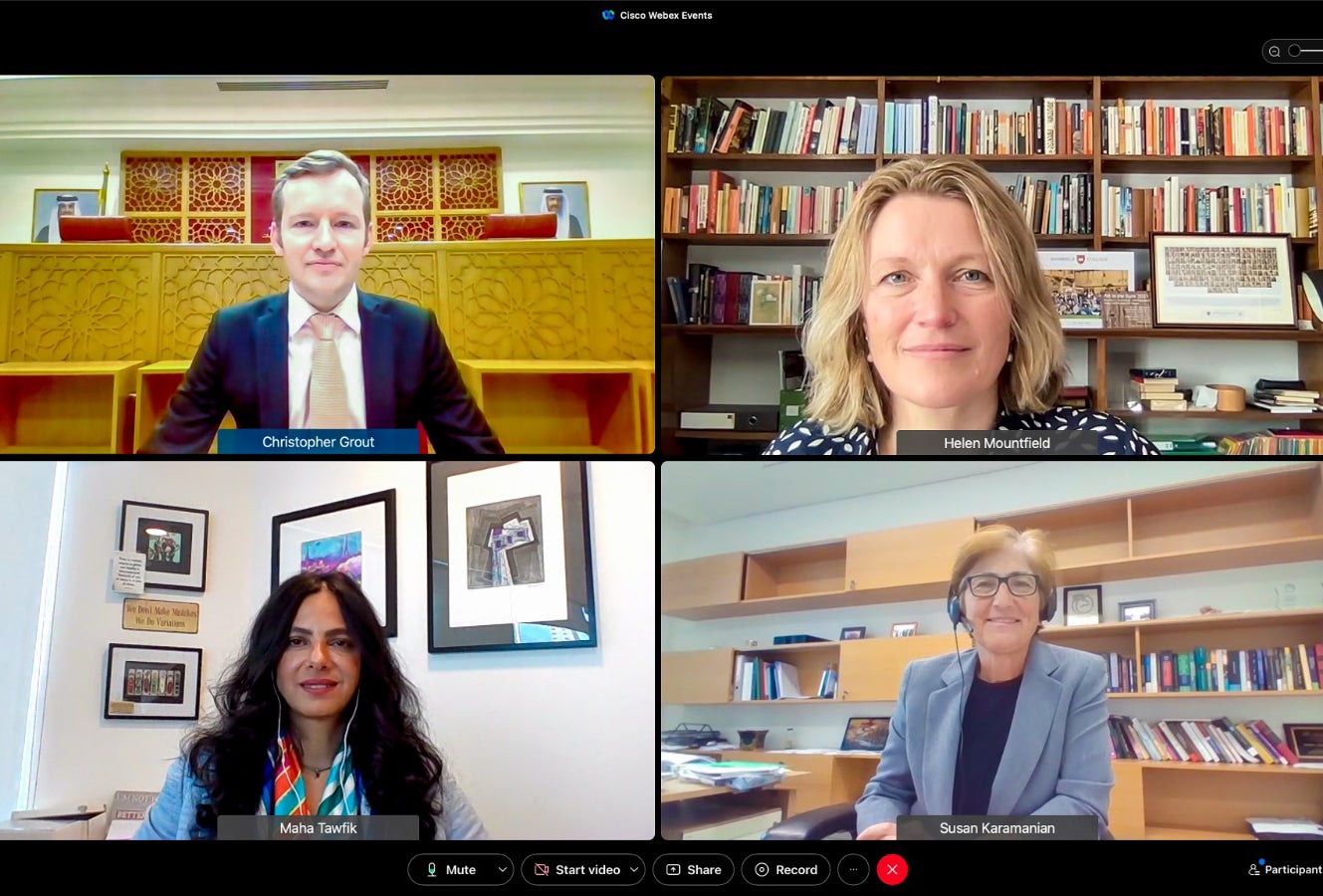
College of Law and Qatar International Court Co-Host Event on Employment Dispute Issues in Qatar

Addressing Climate Change Impacts on the Sporting Calendar: A New Factor in Risk Planning?

Lebanon’s Public Debt Default: The Greek Experience Shows the Cause is as Important as the Remedy

College of Law and the Qatar International Court and Dispute Resolution Centre Examine Mediation in Qatar

College of Law Roundtable for MENA Scholars Discusses Strengthening Environmental Legal Education and Practice

College of Law at HBKU Partners with Qatar Financial Centre to Explore COVID-19’s Impact on Employment Laws

College of Law Hosts Second Clinton W. Francis Lecture in Legal Professionalism

College of Law and Qatar International Court Co-Host Event on Employment Dispute Issues in Qatar

Addressing Climate Change Impacts on the Sporting Calendar: A New Factor in Risk Planning?

Lebanon’s Public Debt Default: The Greek Experience Shows the Cause is as Important as the Remedy

College of Law and the Qatar International Court and Dispute Resolution Centre Examine Mediation in Qatar

College of Law Roundtable for MENA Scholars Discusses Strengthening Environmental Legal Education and Practice

College of Law at HBKU Partners with Qatar Financial Centre to Explore COVID-19’s Impact on Employment Laws

College of Law Hosts Second Clinton W. Francis Lecture in Legal Professionalism

College of Law and Qatar International Court Co-Host Event on Employment Dispute Issues in Qatar

Addressing Climate Change Impacts on the Sporting Calendar: A New Factor in Risk Planning?

Lebanon’s Public Debt Default: The Greek Experience Shows the Cause is as Important as the Remedy

College of Law and the Qatar International Court and Dispute Resolution Centre Examine Mediation in Qatar

College of Law Roundtable for MENA Scholars Discusses Strengthening Environmental Legal Education and Practice

College of Law at HBKU Partners with Qatar Financial Centre to Explore COVID-19’s Impact on Employment Laws

College of Law Hosts Second Clinton W. Francis Lecture in Legal Professionalism

College of Law and Qatar International Court Co-Host Event on Employment Dispute Issues in Qatar

Addressing Climate Change Impacts on the Sporting Calendar: A New Factor in Risk Planning?

Lebanon’s Public Debt Default: The Greek Experience Shows the Cause is as Important as the Remedy

College of Law and the Qatar International Court and Dispute Resolution Centre Examine Mediation in Qatar

College of Law Roundtable for MENA Scholars Discusses Strengthening Environmental Legal Education and Practice

College of Law at HBKU Partners with Qatar Financial Centre to Explore COVID-19’s Impact on Employment Laws

College of Law Hosts Second Clinton W. Francis Lecture in Legal Professionalism

College of Law and Qatar International Court Co-Host Event on Employment Dispute Issues in Qatar

Addressing Climate Change Impacts on the Sporting Calendar: A New Factor in Risk Planning?

Lebanon’s Public Debt Default: The Greek Experience Shows the Cause is as Important as the Remedy

College of Law and the Qatar International Court and Dispute Resolution Centre Examine Mediation in Qatar

College of Law Roundtable for MENA Scholars Discusses Strengthening Environmental Legal Education and Practice

College of Law at HBKU Partners with Qatar Financial Centre to Explore COVID-19’s Impact on Employment Laws

College of Law Hosts Second Clinton W. Francis Lecture in Legal Professionalism

College of Law and Qatar International Court Co-Host Event on Employment Dispute Issues in Qatar

Addressing Climate Change Impacts on the Sporting Calendar: A New Factor in Risk Planning?

Lebanon’s Public Debt Default: The Greek Experience Shows the Cause is as Important as the Remedy

College of Law and the Qatar International Court and Dispute Resolution Centre Examine Mediation in Qatar

College of Law Roundtable for MENA Scholars Discusses Strengthening Environmental Legal Education and Practice

College of Law at HBKU Partners with Qatar Financial Centre to Explore COVID-19’s Impact on Employment Laws

College of Law Hosts Second Clinton W. Francis Lecture in Legal Professionalism

College of Law and Qatar International Court Co-Host Event on Employment Dispute Issues in Qatar

Addressing Climate Change Impacts on the Sporting Calendar: A New Factor in Risk Planning?

Lebanon’s Public Debt Default: The Greek Experience Shows the Cause is as Important as the Remedy

College of Law and the Qatar International Court and Dispute Resolution Centre Examine Mediation in Qatar

College of Law Roundtable for MENA Scholars Discusses Strengthening Environmental Legal Education and Practice

College of Law at HBKU Partners with Qatar Financial Centre to Explore COVID-19’s Impact on Employment Laws

College of Law Hosts Second Clinton W. Francis Lecture in Legal Professionalism

College of Law and Qatar International Court Co-Host Event on Employment Dispute Issues in Qatar

Addressing Climate Change Impacts on the Sporting Calendar: A New Factor in Risk Planning?

Lebanon’s Public Debt Default: The Greek Experience Shows the Cause is as Important as the Remedy

College of Law and the Qatar International Court and Dispute Resolution Centre Examine Mediation in Qatar

College of Law Roundtable for MENA Scholars Discusses Strengthening Environmental Legal Education and Practice

College of Law at HBKU Partners with Qatar Financial Centre to Explore COVID-19’s Impact on Employment Laws

College of Law Hosts Second Clinton W. Francis Lecture in Legal Professionalism

College of Law and Qatar International Court Co-Host Event on Employment Dispute Issues in Qatar

Addressing Climate Change Impacts on the Sporting Calendar: A New Factor in Risk Planning?

Lebanon’s Public Debt Default: The Greek Experience Shows the Cause is as Important as the Remedy

College of Law and the Qatar International Court and Dispute Resolution Centre Examine Mediation in Qatar

College of Law Roundtable for MENA Scholars Discusses Strengthening Environmental Legal Education and Practice

College of Law at HBKU Partners with Qatar Financial Centre to Explore COVID-19’s Impact on Employment Laws

College of Law Hosts Second Clinton W. Francis Lecture in Legal Professionalism

College of Law and Qatar International Court Co-Host Event on Employment Dispute Issues in Qatar

Addressing Climate Change Impacts on the Sporting Calendar: A New Factor in Risk Planning?

Lebanon’s Public Debt Default: The Greek Experience Shows the Cause is as Important as the Remedy

College of Law and the Qatar International Court and Dispute Resolution Centre Examine Mediation in Qatar

College of Law Roundtable for MENA Scholars Discusses Strengthening Environmental Legal Education and Practice

College of Law at HBKU Partners with Qatar Financial Centre to Explore COVID-19’s Impact on Employment Laws

College of Law Hosts Second Clinton W. Francis Lecture in Legal Professionalism

College of Law and Qatar International Court Co-Host Event on Employment Dispute Issues in Qatar

Addressing Climate Change Impacts on the Sporting Calendar: A New Factor in Risk Planning?

Lebanon’s Public Debt Default: The Greek Experience Shows the Cause is as Important as the Remedy

College of Law and the Qatar International Court and Dispute Resolution Centre Examine Mediation in Qatar

College of Law Roundtable for MENA Scholars Discusses Strengthening Environmental Legal Education and Practice

College of Law at HBKU Partners with Qatar Financial Centre to Explore COVID-19’s Impact on Employment Laws

College of Law Hosts Second Clinton W. Francis Lecture in Legal Professionalism

College of Law and Qatar International Court Co-Host Event on Employment Dispute Issues in Qatar

Addressing Climate Change Impacts on the Sporting Calendar: A New Factor in Risk Planning?

Lebanon’s Public Debt Default: The Greek Experience Shows the Cause is as Important as the Remedy

College of Law and the Qatar International Court and Dispute Resolution Centre Examine Mediation in Qatar

College of Law Roundtable for MENA Scholars Discusses Strengthening Environmental Legal Education and Practice

College of Law at HBKU Partners with Qatar Financial Centre to Explore COVID-19’s Impact on Employment Laws

College of Law Hosts Second Clinton W. Francis Lecture in Legal Professionalism

College of Law and Qatar International Court Co-Host Event on Employment Dispute Issues in Qatar

Addressing Climate Change Impacts on the Sporting Calendar: A New Factor in Risk Planning?

Lebanon’s Public Debt Default: The Greek Experience Shows the Cause is as Important as the Remedy

College of Law and the Qatar International Court and Dispute Resolution Centre Examine Mediation in Qatar

College of Law Roundtable for MENA Scholars Discusses Strengthening Environmental Legal Education and Practice

College of Law at HBKU Partners with Qatar Financial Centre to Explore COVID-19’s Impact on Employment Laws

College of Law Hosts Second Clinton W. Francis Lecture in Legal Professionalism

College of Law and Qatar International Court Co-Host Event on Employment Dispute Issues in Qatar

Addressing Climate Change Impacts on the Sporting Calendar: A New Factor in Risk Planning?

Lebanon’s Public Debt Default: The Greek Experience Shows the Cause is as Important as the Remedy

College of Law and the Qatar International Court and Dispute Resolution Centre Examine Mediation in Qatar

College of Law Roundtable for MENA Scholars Discusses Strengthening Environmental Legal Education and Practice

College of Law at HBKU Partners with Qatar Financial Centre to Explore COVID-19’s Impact on Employment Laws

College of Law Hosts Second Clinton W. Francis Lecture in Legal Professionalism

College of Law and Qatar International Court Co-Host Event on Employment Dispute Issues in Qatar

Addressing Climate Change Impacts on the Sporting Calendar: A New Factor in Risk Planning?

Lebanon’s Public Debt Default: The Greek Experience Shows the Cause is as Important as the Remedy

College of Law and the Qatar International Court and Dispute Resolution Centre Examine Mediation in Qatar

College of Law Roundtable for MENA Scholars Discusses Strengthening Environmental Legal Education and Practice

College of Law at HBKU Partners with Qatar Financial Centre to Explore COVID-19’s Impact on Employment Laws

College of Law Hosts Second Clinton W. Francis Lecture in Legal Professionalism

College of Law and Qatar International Court Co-Host Event on Employment Dispute Issues in Qatar

Addressing Climate Change Impacts on the Sporting Calendar: A New Factor in Risk Planning?

Lebanon’s Public Debt Default: The Greek Experience Shows the Cause is as Important as the Remedy

College of Law and the Qatar International Court and Dispute Resolution Centre Examine Mediation in Qatar

College of Law Roundtable for MENA Scholars Discusses Strengthening Environmental Legal Education and Practice

College of Law at HBKU Partners with Qatar Financial Centre to Explore COVID-19’s Impact on Employment Laws

College of Law Hosts Second Clinton W. Francis Lecture in Legal Professionalism

College of Law and Qatar International Court Co-Host Event on Employment Dispute Issues in Qatar

Addressing Climate Change Impacts on the Sporting Calendar: A New Factor in Risk Planning?

Lebanon’s Public Debt Default: The Greek Experience Shows the Cause is as Important as the Remedy

College of Law and the Qatar International Court and Dispute Resolution Centre Examine Mediation in Qatar

College of Law Roundtable for MENA Scholars Discusses Strengthening Environmental Legal Education and Practice

College of Law at HBKU Partners with Qatar Financial Centre to Explore COVID-19’s Impact on Employment Laws

College of Law Hosts Second Clinton W. Francis Lecture in Legal Professionalism

College of Law and Qatar International Court Co-Host Event on Employment Dispute Issues in Qatar

Addressing Climate Change Impacts on the Sporting Calendar: A New Factor in Risk Planning?

Lebanon’s Public Debt Default: The Greek Experience Shows the Cause is as Important as the Remedy

College of Law and the Qatar International Court and Dispute Resolution Centre Examine Mediation in Qatar

College of Law Roundtable for MENA Scholars Discusses Strengthening Environmental Legal Education and Practice

College of Law at HBKU Partners with Qatar Financial Centre to Explore COVID-19’s Impact on Employment Laws

College of Law Hosts Second Clinton W. Francis Lecture in Legal Professionalism

College of Law and Qatar International Court Co-Host Event on Employment Dispute Issues in Qatar

Addressing Climate Change Impacts on the Sporting Calendar: A New Factor in Risk Planning?

Lebanon’s Public Debt Default: The Greek Experience Shows the Cause is as Important as the Remedy

College of Law and the Qatar International Court and Dispute Resolution Centre Examine Mediation in Qatar

College of Law Roundtable for MENA Scholars Discusses Strengthening Environmental Legal Education and Practice

College of Law at HBKU Partners with Qatar Financial Centre to Explore COVID-19’s Impact on Employment Laws

College of Law Hosts Second Clinton W. Francis Lecture in Legal Professionalism

College of Law and Qatar International Court Co-Host Event on Employment Dispute Issues in Qatar

Addressing Climate Change Impacts on the Sporting Calendar: A New Factor in Risk Planning?

Lebanon’s Public Debt Default: The Greek Experience Shows the Cause is as Important as the Remedy

College of Law and the Qatar International Court and Dispute Resolution Centre Examine Mediation in Qatar

College of Law Roundtable for MENA Scholars Discusses Strengthening Environmental Legal Education and Practice

College of Law at HBKU Partners with Qatar Financial Centre to Explore COVID-19’s Impact on Employment Laws

College of Law Hosts Second Clinton W. Francis Lecture in Legal Professionalism

College of Law and Qatar International Court Co-Host Event on Employment Dispute Issues in Qatar

Addressing Climate Change Impacts on the Sporting Calendar: A New Factor in Risk Planning?

Lebanon’s Public Debt Default: The Greek Experience Shows the Cause is as Important as the Remedy

College of Law and the Qatar International Court and Dispute Resolution Centre Examine Mediation in Qatar

College of Law Roundtable for MENA Scholars Discusses Strengthening Environmental Legal Education and Practice

College of Law at HBKU Partners with Qatar Financial Centre to Explore COVID-19’s Impact on Employment Laws

College of Law Hosts Second Clinton W. Francis Lecture in Legal Professionalism

College of Law and Qatar International Court Co-Host Event on Employment Dispute Issues in Qatar

Addressing Climate Change Impacts on the Sporting Calendar: A New Factor in Risk Planning?

Lebanon’s Public Debt Default: The Greek Experience Shows the Cause is as Important as the Remedy

College of Law and the Qatar International Court and Dispute Resolution Centre Examine Mediation in Qatar

College of Law Roundtable for MENA Scholars Discusses Strengthening Environmental Legal Education and Practice

College of Law at HBKU Partners with Qatar Financial Centre to Explore COVID-19’s Impact on Employment Laws

College of Law Hosts Second Clinton W. Francis Lecture in Legal Professionalism

College of Law and Qatar International Court Co-Host Event on Employment Dispute Issues in Qatar

Addressing Climate Change Impacts on the Sporting Calendar: A New Factor in Risk Planning?

Lebanon’s Public Debt Default: The Greek Experience Shows the Cause is as Important as the Remedy

College of Law and the Qatar International Court and Dispute Resolution Centre Examine Mediation in Qatar

College of Law Roundtable for MENA Scholars Discusses Strengthening Environmental Legal Education and Practice

College of Law at HBKU Partners with Qatar Financial Centre to Explore COVID-19’s Impact on Employment Laws

College of Law Hosts Second Clinton W. Francis Lecture in Legal Professionalism

College of Law and Qatar International Court Co-Host Event on Employment Dispute Issues in Qatar

Addressing Climate Change Impacts on the Sporting Calendar: A New Factor in Risk Planning?

Lebanon’s Public Debt Default: The Greek Experience Shows the Cause is as Important as the Remedy

College of Law and the Qatar International Court and Dispute Resolution Centre Examine Mediation in Qatar

College of Law Roundtable for MENA Scholars Discusses Strengthening Environmental Legal Education and Practice

College of Law at HBKU Partners with Qatar Financial Centre to Explore COVID-19’s Impact on Employment Laws

College of Law Hosts Second Clinton W. Francis Lecture in Legal Professionalism

College of Law and Qatar International Court Co-Host Event on Employment Dispute Issues in Qatar

Addressing Climate Change Impacts on the Sporting Calendar: A New Factor in Risk Planning?

Lebanon’s Public Debt Default: The Greek Experience Shows the Cause is as Important as the Remedy

College of Law and the Qatar International Court and Dispute Resolution Centre Examine Mediation in Qatar

College of Law Roundtable for MENA Scholars Discusses Strengthening Environmental Legal Education and Practice

College of Law at HBKU Partners with Qatar Financial Centre to Explore COVID-19’s Impact on Employment Laws

College of Law Hosts Second Clinton W. Francis Lecture in Legal Professionalism

College of Law and Qatar International Court Co-Host Event on Employment Dispute Issues in Qatar

Addressing Climate Change Impacts on the Sporting Calendar: A New Factor in Risk Planning?

Lebanon’s Public Debt Default: The Greek Experience Shows the Cause is as Important as the Remedy

College of Law and the Qatar International Court and Dispute Resolution Centre Examine Mediation in Qatar

College of Law Roundtable for MENA Scholars Discusses Strengthening Environmental Legal Education and Practice

College of Law at HBKU Partners with Qatar Financial Centre to Explore COVID-19’s Impact on Employment Laws

College of Law Hosts Second Clinton W. Francis Lecture in Legal Professionalism

College of Law and Qatar International Court Co-Host Event on Employment Dispute Issues in Qatar

Addressing Climate Change Impacts on the Sporting Calendar: A New Factor in Risk Planning?

Lebanon’s Public Debt Default: The Greek Experience Shows the Cause is as Important as the Remedy

College of Law and the Qatar International Court and Dispute Resolution Centre Examine Mediation in Qatar

College of Law Roundtable for MENA Scholars Discusses Strengthening Environmental Legal Education and Practice

College of Law at HBKU Partners with Qatar Financial Centre to Explore COVID-19’s Impact on Employment Laws

College of Law Hosts Second Clinton W. Francis Lecture in Legal Professionalism

College of Law and Qatar International Court Co-Host Event on Employment Dispute Issues in Qatar

Addressing Climate Change Impacts on the Sporting Calendar: A New Factor in Risk Planning?

Lebanon’s Public Debt Default: The Greek Experience Shows the Cause is as Important as the Remedy

College of Law and the Qatar International Court and Dispute Resolution Centre Examine Mediation in Qatar

College of Law Roundtable for MENA Scholars Discusses Strengthening Environmental Legal Education and Practice

College of Law at HBKU Partners with Qatar Financial Centre to Explore COVID-19’s Impact on Employment Laws

College of Law Hosts Second Clinton W. Francis Lecture in Legal Professionalism

College of Law and Qatar International Court Co-Host Event on Employment Dispute Issues in Qatar

Addressing Climate Change Impacts on the Sporting Calendar: A New Factor in Risk Planning?

Lebanon’s Public Debt Default: The Greek Experience Shows the Cause is as Important as the Remedy

College of Law and the Qatar International Court and Dispute Resolution Centre Examine Mediation in Qatar

College of Law Roundtable for MENA Scholars Discusses Strengthening Environmental Legal Education and Practice

College of Law at HBKU Partners with Qatar Financial Centre to Explore COVID-19’s Impact on Employment Laws

College of Law Hosts Second Clinton W. Francis Lecture in Legal Professionalism

College of Law and Qatar International Court Co-Host Event on Employment Dispute Issues in Qatar

Addressing Climate Change Impacts on the Sporting Calendar: A New Factor in Risk Planning?

Lebanon’s Public Debt Default: The Greek Experience Shows the Cause is as Important as the Remedy

College of Law and the Qatar International Court and Dispute Resolution Centre Examine Mediation in Qatar

College of Law Roundtable for MENA Scholars Discusses Strengthening Environmental Legal Education and Practice

College of Law at HBKU Partners with Qatar Financial Centre to Explore COVID-19’s Impact on Employment Laws

College of Law Hosts Second Clinton W. Francis Lecture in Legal Professionalism

College of Law and Qatar International Court Co-Host Event on Employment Dispute Issues in Qatar

Addressing Climate Change Impacts on the Sporting Calendar: A New Factor in Risk Planning?

Lebanon’s Public Debt Default: The Greek Experience Shows the Cause is as Important as the Remedy

College of Law and the Qatar International Court and Dispute Resolution Centre Examine Mediation in Qatar

College of Law Roundtable for MENA Scholars Discusses Strengthening Environmental Legal Education and Practice

College of Law at HBKU Partners with Qatar Financial Centre to Explore COVID-19’s Impact on Employment Laws

College of Law Hosts Second Clinton W. Francis Lecture in Legal Professionalism

College of Law and Qatar International Court Co-Host Event on Employment Dispute Issues in Qatar

Addressing Climate Change Impacts on the Sporting Calendar: A New Factor in Risk Planning?

Lebanon’s Public Debt Default: The Greek Experience Shows the Cause is as Important as the Remedy

College of Law and the Qatar International Court and Dispute Resolution Centre Examine Mediation in Qatar

College of Law Roundtable for MENA Scholars Discusses Strengthening Environmental Legal Education and Practice

College of Law at HBKU Partners with Qatar Financial Centre to Explore COVID-19’s Impact on Employment Laws

College of Law Hosts Second Clinton W. Francis Lecture in Legal Professionalism

College of Law and Qatar International Court Co-Host Event on Employment Dispute Issues in Qatar

Addressing Climate Change Impacts on the Sporting Calendar: A New Factor in Risk Planning?

Lebanon’s Public Debt Default: The Greek Experience Shows the Cause is as Important as the Remedy

College of Law and the Qatar International Court and Dispute Resolution Centre Examine Mediation in Qatar

College of Law Roundtable for MENA Scholars Discusses Strengthening Environmental Legal Education and Practice

College of Law at HBKU Partners with Qatar Financial Centre to Explore COVID-19’s Impact on Employment Laws

College of Law Hosts Second Clinton W. Francis Lecture in Legal Professionalism

College of Law and Qatar International Court Co-Host Event on Employment Dispute Issues in Qatar

Addressing Climate Change Impacts on the Sporting Calendar: A New Factor in Risk Planning?

Lebanon’s Public Debt Default: The Greek Experience Shows the Cause is as Important as the Remedy

College of Law and the Qatar International Court and Dispute Resolution Centre Examine Mediation in Qatar

College of Law Roundtable for MENA Scholars Discusses Strengthening Environmental Legal Education and Practice

College of Law at HBKU Partners with Qatar Financial Centre to Explore COVID-19’s Impact on Employment Laws

College of Law Hosts Second Clinton W. Francis Lecture in Legal Professionalism

College of Law and Qatar International Court Co-Host Event on Employment Dispute Issues in Qatar

Addressing Climate Change Impacts on the Sporting Calendar: A New Factor in Risk Planning?

Lebanon’s Public Debt Default: The Greek Experience Shows the Cause is as Important as the Remedy

College of Law and the Qatar International Court and Dispute Resolution Centre Examine Mediation in Qatar

College of Law Roundtable for MENA Scholars Discusses Strengthening Environmental Legal Education and Practice

College of Law at HBKU Partners with Qatar Financial Centre to Explore COVID-19’s Impact on Employment Laws

College of Law Hosts Second Clinton W. Francis Lecture in Legal Professionalism

College of Law and Qatar International Court Co-Host Event on Employment Dispute Issues in Qatar

Addressing Climate Change Impacts on the Sporting Calendar: A New Factor in Risk Planning?

Lebanon’s Public Debt Default: The Greek Experience Shows the Cause is as Important as the Remedy

College of Law and the Qatar International Court and Dispute Resolution Centre Examine Mediation in Qatar

College of Law Roundtable for MENA Scholars Discusses Strengthening Environmental Legal Education and Practice

College of Law at HBKU Partners with Qatar Financial Centre to Explore COVID-19’s Impact on Employment Laws

College of Law Hosts Second Clinton W. Francis Lecture in Legal Professionalism

College of Law and Qatar International Court Co-Host Event on Employment Dispute Issues in Qatar

Addressing Climate Change Impacts on the Sporting Calendar: A New Factor in Risk Planning?

Lebanon’s Public Debt Default: The Greek Experience Shows the Cause is as Important as the Remedy

College of Law and the Qatar International Court and Dispute Resolution Centre Examine Mediation in Qatar

College of Law Roundtable for MENA Scholars Discusses Strengthening Environmental Legal Education and Practice

College of Law at HBKU Partners with Qatar Financial Centre to Explore COVID-19’s Impact on Employment Laws

College of Law Hosts Second Clinton W. Francis Lecture in Legal Professionalism

College of Law and Qatar International Court Co-Host Event on Employment Dispute Issues in Qatar

Addressing Climate Change Impacts on the Sporting Calendar: A New Factor in Risk Planning?

Lebanon’s Public Debt Default: The Greek Experience Shows the Cause is as Important as the Remedy

College of Law and the Qatar International Court and Dispute Resolution Centre Examine Mediation in Qatar

College of Law Roundtable for MENA Scholars Discusses Strengthening Environmental Legal Education and Practice

College of Law at HBKU Partners with Qatar Financial Centre to Explore COVID-19’s Impact on Employment Laws

College of Law Hosts Second Clinton W. Francis Lecture in Legal Professionalism

College of Law and Qatar International Court Co-Host Event on Employment Dispute Issues in Qatar

Addressing Climate Change Impacts on the Sporting Calendar: A New Factor in Risk Planning?

Lebanon’s Public Debt Default: The Greek Experience Shows the Cause is as Important as the Remedy

College of Law and the Qatar International Court and Dispute Resolution Centre Examine Mediation in Qatar

College of Law Roundtable for MENA Scholars Discusses Strengthening Environmental Legal Education and Practice

College of Law at HBKU Partners with Qatar Financial Centre to Explore COVID-19’s Impact on Employment Laws

College of Law Hosts Second Clinton W. Francis Lecture in Legal Professionalism

College of Law and Qatar International Court Co-Host Event on Employment Dispute Issues in Qatar

Addressing Climate Change Impacts on the Sporting Calendar: A New Factor in Risk Planning?

Lebanon’s Public Debt Default: The Greek Experience Shows the Cause is as Important as the Remedy

College of Law and the Qatar International Court and Dispute Resolution Centre Examine Mediation in Qatar

College of Law Roundtable for MENA Scholars Discusses Strengthening Environmental Legal Education and Practice






